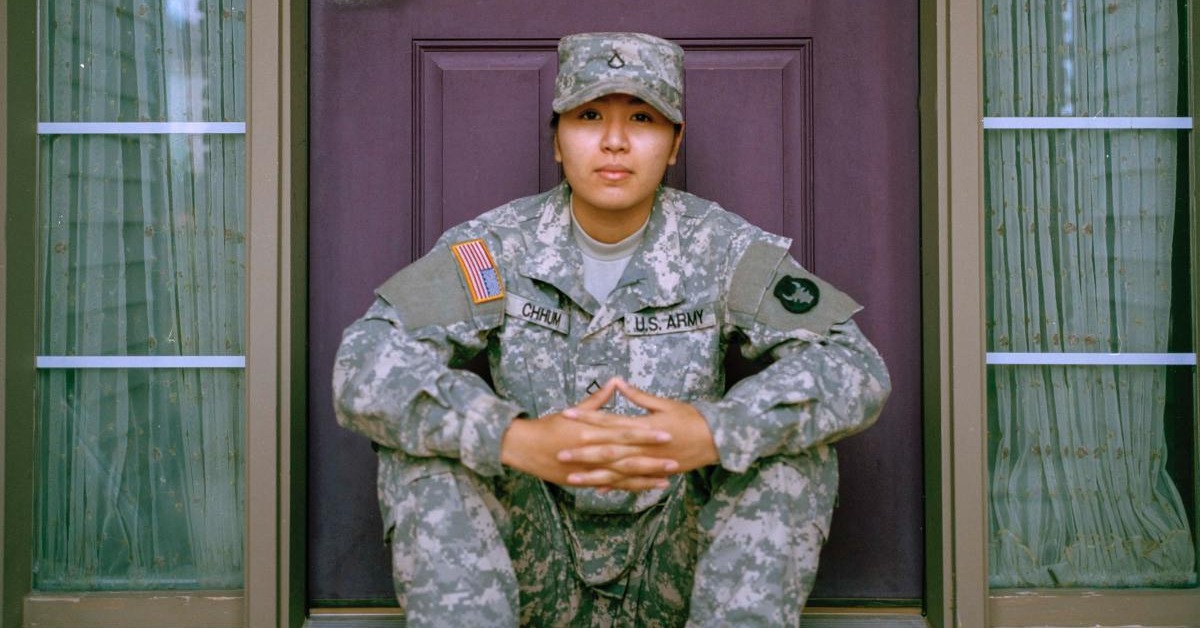
How to Become a Military Social Worker
If you're passionate about improving service members' quality of life [...]

According to the US Bureau of Labor Statistics (BLS), the median annual income for a social worker is $50,390. That’s not chicken feed, but it’s not Rockefeller money either.
If you’ve chosen the social work field for your career, you already know this, and it doesn’t matter. You want to be a social worker because you are driven to help others in need. You are an organizer, a problem solver, a facilitator, and a fixer advocating for social change. Plus, you have a big heart.
If you’re going to survive as a social worker, though, you also need to be pragmatic. You are probably not going to make big money, so it may not be wise to take on a ton of student debt. As you consider Master of Social Work programs, cost should be a major factor in your decision.
Fortunately, many schools offer very affordable online master’s degree programs. Why choose an online MSW program? First, online study broadens your choices considerably over what would otherwise be available to you locally. Second, you can study somewhere outside your region without having to relocate or commute, which by itself will net you considerable savings. Third, online programs are essentially identical to on-campus programs; you don’t forfeit anything in the way of academic quality or the value of your master’s in social work by studying online.
True, you won’t benefit from face-to-face encounters with faculty and peers. And, you’ll probably need an extra measure of self-motivation, since many of these social work programs are essentially self-paced. For most students, however, the ease and convenience of online study far outweigh these potential challenges. And now, thanks to this article, you will know how to find the most affordable online MSW programs.
In this article, we’ll cover:
The short answer: you need a license to practice social work, and you need a social work degree to earn a social work license and be on your way to reaching your career goals.
It’s a little more complicated than that, though. If you earned a Bachelor of Social Work (BSW) as an undergraduate, you hold a social work degree that qualifies you to be a Licensed Bachelor of Social Work (LBSW). All right, you’ve got your social work degree, you have your licensure, you’re set, right?
A little yes, but mostly no. As an LBSW, you’ll be limited in the responsibilities you can take on. Your prospects for career advancement will be similarly limited. You can’t practice clinical social work, and you will likely be closed out of jobs in administration, policymaking, research, and other areas with broader social impact.
We do have some most excellent news for you, though. Your BSW allows you to enter an MSW program with an advanced standing track. That can cut the number of credits required to earn the MSW degree—and the amount of time and money it takes—in half.
If your bachelor’s degree is in a field other than social work, you’ll need a social work degree to earn a license. Since you can earn an MSW in two years with the advanced standing option, and since it will qualify you for significantly better jobs than a BSW would, pursuing the MSW at this point is, for you, a no-brainer. You will need to enroll in a standard MSW degree program, which typically requires about 60 credit hours (two years of full-time study) to complete.
Regardless of which path you follow, you will need to complete MSW coursework and a fieldwork practicum. The latter typically requires 900 to 1,200 hours of field experience in a social work setting. You should expect to spend two to three full days each week fulfilling this obligation, which typically occurs during the second year of full-time standard MSW study.
Between your field practicum and your online courses, you will be pretty busy. It’s not impossible to meet family and work obligations in addition, but it will take effort and good time-management skills. Prepare to feel a little overwhelmed as you pursue this degree (many MSW students do).
| University and Program Name | Learn More |
|
Virginia Commonwealth University:
Online Master of Social Work
|
Yes. Here’s why:
As all students and educators discovered during the COVID pandemic, it’s possible to deliver quality instruction online. It requires everyone to adapt to the new environment but the adjustments are relatively mild. As more and more learning has migrated to the online space, online learning has become the new normal. We no longer ask whether it’s possible to deliver a first-rate education online; rather, we ask whether a particular program is doing a good job of it. That’s the same question we ask of on-campus programs.
Over the years, schools have tested various approaches to online teaching, team projects, and test administration. This initial period of discovery is over: online educators now know what works and what doesn’t. They build programs accordingly.
More schools are offering online MSW degrees; at last count, 176 US universities and colleges delivered online Master of Social Work degree programs, according to the Council of Social Work Education (CSWE). You should be able to find an online program delivering your desired specialization at your preferred price point.
In selecting the schools listed below, we focused on tuition rates and accessibility. We calculated the cost of tuition only based on the school’s published per-credit tuition rate times the number of credit hours required to complete the standard curriculum (as opposed to the advanced standing curriculum, which only some of these programs offer). Where appropriate, we calculated in-state and non-resident tuition. We learned that a surprising number of state schools charge identical tuition rates to all online students regardless of residency.
When considering accessibility, we favored master’s in social work programs that are open to students in all (or at least most) states, and that require few, or no, on-campus visits. As a result, we omitted a few programs that had low in-state tuition but were not open to students from other states, or that required so many campus visits as to make long-distance learning highly impractical, if not impossible.
Every one of the listed programs has earned Council on Social Work Education (CSWE) accreditation, the essential standard of social work education excellence.
Because tuition rates typically change annually, we thought it would be more helpful to group these schools by tuition range for the 2021-2022 academic year. The totals shown below reflect tuition to complete the entire program (as opposed to a per semester or per year tuition). Students in all programs incur further charges and expenses (books and various fees), which we have not included in our calculations. By way of comparison, the most expensive online Master of Social Work programs in the United States charge over $100,000 in tuition. More than 30 schools in our survey charged over $50,000 in tuition to complete the degree program.
Questions or feedback? Email editor@noodle.com

If you're passionate about improving service members' quality of life [...]

If you're passionate about improving older adults' quality of life [...]

The lack of affordable housing and sufficient mental health care [...]

Medical social workers help clients at a variety of service [...]

The social work Code of Ethics embraces service, social justice, [...]
Categorized as: Social Work, Social Work & Counseling & Psychology